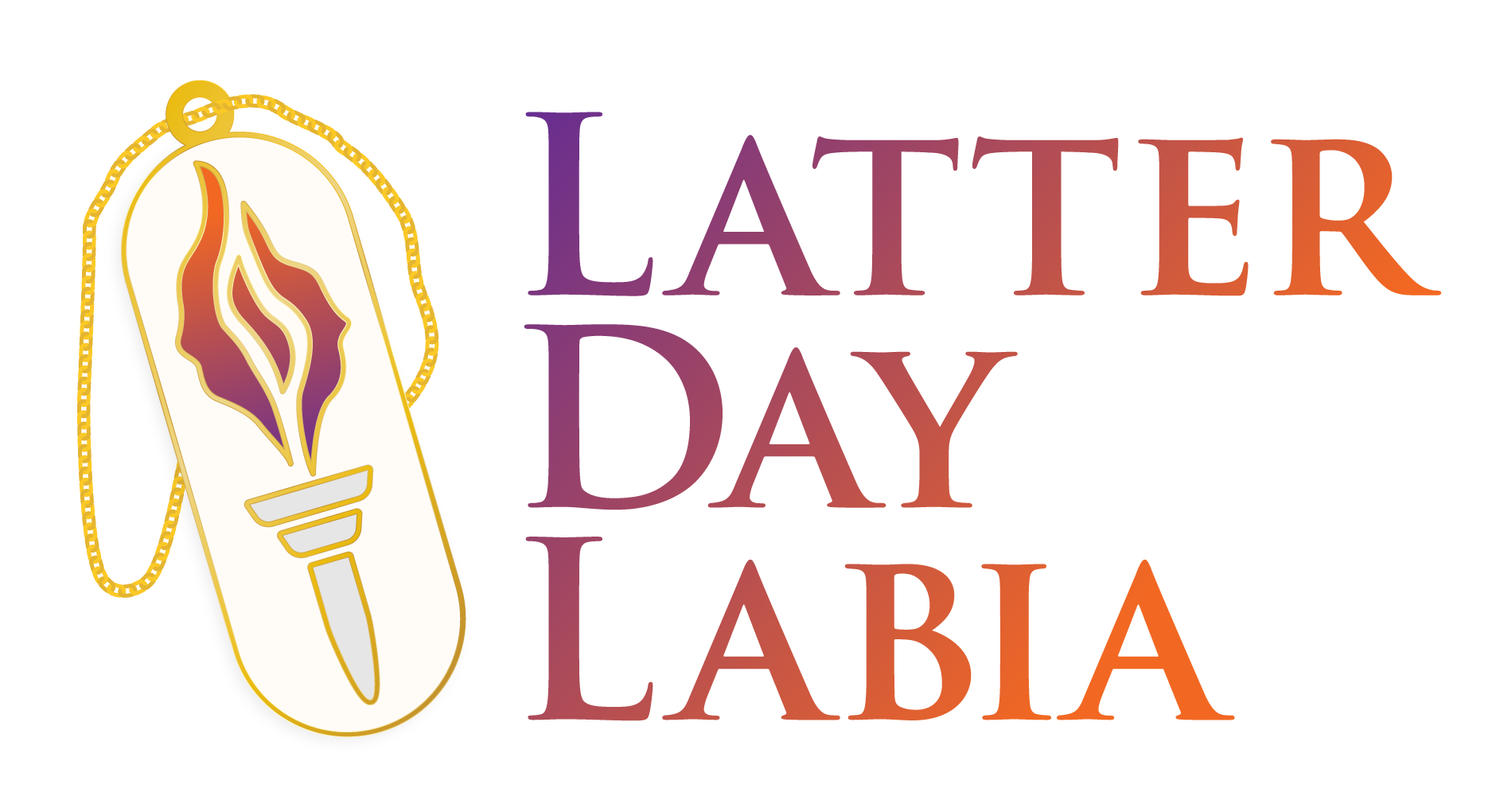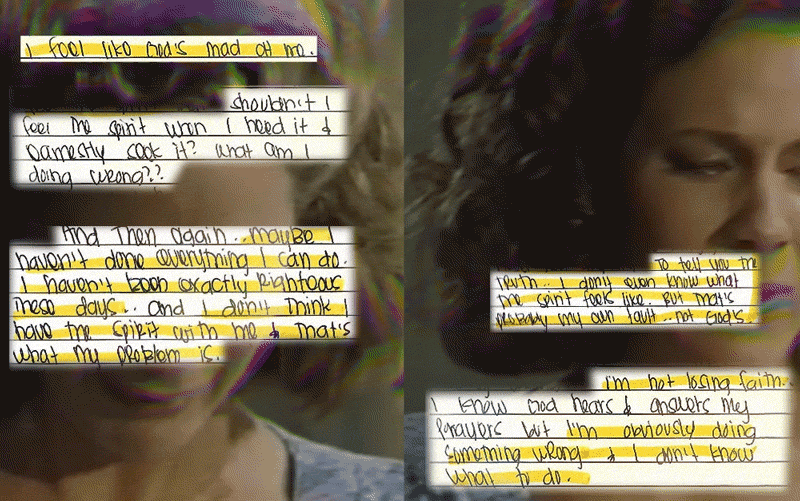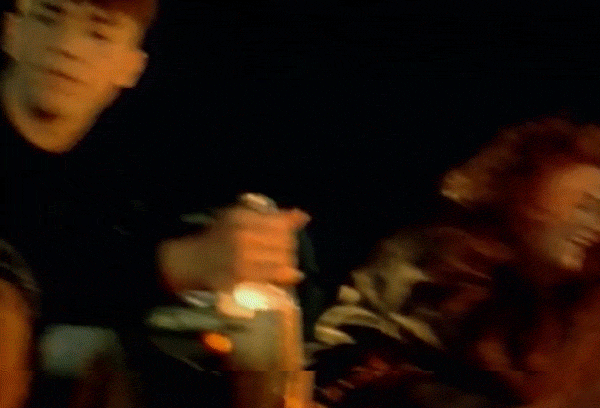This is an essay I wrote about leaving the church.
It was inspired by conversations with Eliza, a writer you should know, who offered me a mirror in her own leaving story. I realized I’d never written it down, not the decade in full at least. And I wondered if synthesizing it would help me close old time loops, in a present necessitating new, more embodied time loops.
There’s nothing groundbreaking or special in here. No hard-won truths anyone needs to hear. So many fellow leavers experienced shame far worse than I ever did as a cisgendered white woman with therapy access. The church was built by and for people like me and largely worked for me. So I offer this humbly as one experience in the tapestry of meaning-making we leavers are weaving for each other.
Perhaps in my leaving 12 years ago, you who are leaving or have left might find a mirror of your own. We join a long line of leavers, and the constellation of our stories across time serves as an “enlightened witness” to all of us. (I owe that term to Rae, another writer you should know, who recently pointed me toward Alice Miller and the humiliation of childhood, which feels apt for this story.)
All of the gifs below come from the archive. And though I don’t describe numbers or behaviors, I do mention an eating disorder, so take care.
Thank you for reading.
Timelines
I have a thing for timelines. Especially overlapping timelines that surface connections rich with context. It’s new, this fascination, and I’m guessing it’s about my relationship to relationships.
I like the visual of timelines. They orient me in time and place, which is nice because I struggle with that. I’ve never been very good at remembering. Worse, I lose the forest for the trees, if you’ll allow the cliche. I haven’t always understood where I end and others begin, making shifty work of relating. I get lost in other people’s timelines, forget my own—a complete lack of orientation to reality, is what I’m trying to say.
The point is, when I see historical timelines now, I see relationships all over the place. Intersecting movements, clashing ideas, theorists across oceans writing the same things at the same time just in different flavors. It’s made me curious about my own timeline, and how an ahistorical cult jumbled it.
If I put it back together, will I stop feeling so lost?
My timeline starts 35 years ago, as the youngest of four children. Both sides of my family have been Utah Mormon since the 1840s, though my grandparents left the church at some point, and their kids, my parents, rejoined. I can’t find much information on that story. My dad is no longer Mormon, or at least it’s complicated. Two siblings have left.
That means my mom and one other sibling are still active. My dad works on it, depending on the severity of his Fox News scaries.
I left in 2010.
When I’ve told this story before, I’ve said it didn’t feel hard. But I also don’t remember it very well. Dissociation is my primary coping skill, and the memories are fuzzy.
The short of it is leaving itself started with Proposition 8. But it also started with my first trip through the temple. And if I really think about it, it started with a series of bishop meetings when I was 16-17. Again, it’s fuzzy.
But Proposition 8 was the first moment I allowed myself to ask “Is this real?” More specifically, it was the first time I reconnected with my interior values, and recognized a contradiction that connected me to my anger.
My husband and I watched “8: The Mormon Proposition,” though this is the fuzziest memory of all. I don’t remember where we heard about it, why we agreed to watch it. In fact I’m not entirely sure that’s what we watched at all.
But I remember blurred faces of apostles in a meeting, strategizing something, damning evidence that the church was using its money to promote homophobic, transphobic legislation. Meddling in politics.
It bothered me, that my religion, the leaders who I sustain, would do that, because I naively thought they were politically neutral. It didn’t feel right. Church blurring into state felt dangerous, though I was politically a speck at the time and couldn’t have verbalized that.
But that first moment of pause, that first time I registered disagreement with the church I was born into, is what permissioned the first google search, the copy of “No Man Knows My History.”
It was three years before the CES Letter, and r/ex-mormon intimidated me. “Mormon Stories” was around, but I didn’t know about it or podcasts generally. Plus I tried to be *moderate* about it—look into it, but not too much into it. I thought maybe if I kept it surface level, I could assuage both sides of my conscience.
But mind and body were reconnecting, and I couldn’t reconcile anything anymore. So I stopped going on Sundays.
And in 2013, I removed my name from the records and didn’t tell anyone in my family anything. All they know is one day I showed up at Easter dinner in a tank top.
The long of it, though, is my faith stopped long before 2010, if it ever existed at all. I still can’t tell.
2004
At 15 I loved a boy with tattoos on his pecs. My family is a strange brand of Mormonism. Orthodox, yet lax in many ways. My mom didn’t like that I was dating before 16. I didn’t really either and felt ashamed, but I also did it anyway. I was mystified. And she let me because she felt bad for him and probably because we could convert him.
At 17 my bishop put me on a nine-month disciplinary probation period.
“Today is the beginning of my new life. I finally found my way out of the rut. I went to my bishop last Wednesday and told him everything. I got stuck with an informal probation of 9 months. No sacrament, no bearing testimony.
“But you know what? I am so happy. I’m excited for the end of 9 months when I can shred the bishop’s notes in the shredder and get my temple recommend.”
“My bishop told me that in 9 months I’d be even happier than I am now … that must be pretty happy.
“I know the church is true. It’s the reason we’re here! It brings so much comfort and guidance. I can’t wait to take the sacrament again so I can be as pure as I was at baptism.
“I’m just so happy that I could overcome this trial and gain this knowledge.”
“I had another meeting with my bishop today. They released me as Laurel president. I felt so ashamed.
“He gave me a letter containing all of my stipulations and it made me so sad.
“I offended my savior … I made a mockery of his atoning sacrifice.”
“I never meant to offend my savior. I never wanted to or contemplated doing it. It’s so awful to think about.”
“The repentance is going great. I’m reading ‘The Miracle of Forgiveness’ by President Kimball and praying fervently.
“My bishop told me that if I keep it up, I’ll only have to do 7 months.”
“I can’t wait. I feel like it’s a new beginning for me … I’m a senior! I’m so optimistic for the future … to find someone to take me to the temple when I am pure again.”
Five months later I was hospitalized for an eating disorder, and everyone was so puzzled about how it had gotten so bad.
The truth was it had been bad for awhile, and I was going to therapy, but nobody was asking questions about church and how I felt there. My therapist wasn’t Mormon, but we were doing family therapy with my parents, and I guess that was off limits? I don’t know. I tried to get my medical records later, to see if I could understand the decisions adults had made about me, but they were long shredded.
Meanwhile:
“All the scriptures say ‘endure to the end and press forward’ and you’ll be blessed. But I can’t endure anymore. It’s too painful. I’m so lonely.
“The spirit is not in our home lately. I need to not worry so much about worldly things and just be myself and do my best. I need to be humble to beat this disease I think.”
“If you can control your thoughts, you can overcome habits—even personal, degrading habits. If you can learn to master them, you will have a happy life.”
Boyd K. Packer
“I feel like god’s mad at me.
“Shouldn’t I feel the spirit when I need it and earnestly seek it? What am I doing wrong??
“And then again … maybe I haven’t done everything I can do. I haven’t been exactly righteous these days … and I don’t think I have the spirit with me and that’s what my problem is.”
“To tell you the truth … I don’t even know what the spirit feels like. But that’s probably my own fault … not God’s.
“I’m not losing faith. I know God hears and answers my prayers but I’m obviously doing something wrong and I don’t know what to do.”
Really the probation period was the tail end of a long string of bishop visits—I did not want to end my relationship, and I waffled between self-flagellation and defiance. At times I convinced myself it wasn’t wrong, because it felt so good to feel good in my body. And I never felt good in my body.
In the end I did what I believed I had to, I wanted to repent, but I resented it. And I felt scared when the bishop asked “Did he touch you under your pants” and “Did you like it?”
The first time I refused the tray in front of my mom, I thought I was going to die.
I count all of this as the first time the church broke my heart, or some other way to describe innocence obliteration. I felt foolish for thinking god would greet me gently.
2008
Before we got married, my dad said to my partner, “You know what you’re getting into, right?” He was referring to my stuff. The eating disorder, sensitivity, moodiness, perennial discontent.
My partner said he thought so. He knew rehab wasn’t too long ago, but we were happy.
I certainly thought I’d arrived. Surely temple marriage signaled a full recovery.
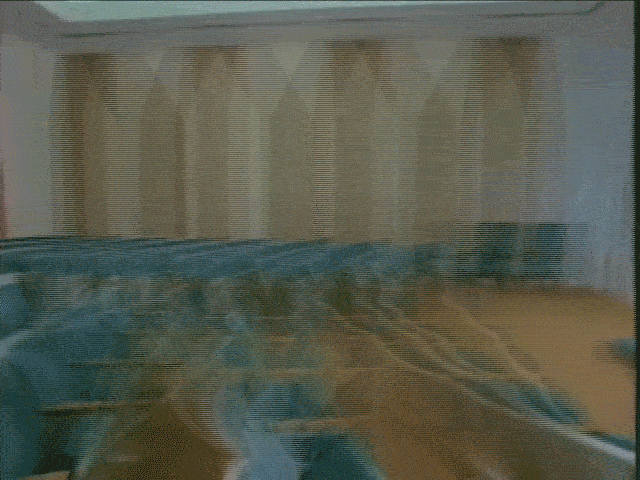
Endowment
The confusion started with Huldah. I’d never heard the name before, and I wasn’t sure I’d even heard it correctly. And it felt so rushed. I didn’t know where to look, what to do with my hands. The temple workers talked so quickly, and it was strange to hear the same words uttered in the cubicle next to me and across from me, almost quadraphonic.
I wondered what my partner’s new name was, and didn’t yet know I couldn’t know it. I wondered if he felt scared too, and if we’d talk about it afterward. It was his first time through, too.
What I did not expect was a movie theater.
And they did not tell me they separated the men from the women.
And then the lights dim, and it’s space. 1970s space. And I was certain the church would have modernized this more by now. The bad acting threw me. It felt low budget, surreal. The walls of animal murals made me uneasy.
And I wasn’t prepared for the costume changes. I struggled to tie my veil, and my mom had to help me several times with the sash switch. I felt conspicuous and vulnerable, and scared that I wasn’t feeling the elation, ascension, joy, peace I’d been promised.
My whole life had been organized around this moment. I had continued to confess in the bishop’s office with every relationship, faithfully, swearing I’d get there, I’d make it, Bishop! I will! And I did. And this was it.
And then it’s the circle chant. And you think about your mom doing this for 35 years. All those Friday nights, by herself, because my dad was in and out, coffee or tithing, never both. He wouldn’t be at the sealing ceremony a couple weeks later. Where I’d be wearing this regalia once again. I wondered if that was going to be scarier than this.
The performance of it shocked me. I was certain I’d never memorize the gestures, the veil dialogue. I didn’t realize it was going to be such a test. The curtain was vast, in width and height, and the pockets made me uncomfortable. It felt like the hand tunnel in “Labyrinth,” and it smelled like bread and dry mouths, but it was the mallet that did me in. It looked like a drum stick, and I wanted to laugh, but I also wanted to not do this at all. I was nervous, I hated their whispering the script in my ear, it felt like acting and nothing embarrassed me more.
The worst part for me, was facing my almost in-laws in the Celestial Room. I didn’t want to. I didn’t want to talk to them, I felt resistant and avoidant. But I also wasn’t sure what to say to my mom, and our family felt so small next to their progeny—extended family members showed up, and I wondered why we were all sharing this experience together. It felt too intimate and I wanted to be alone. I wanted to react. But I didn’t want to let them all down. I wanted to perform the peaceful newly endowed soon to be sexed glowing Mormon temple bride.
My partner’s dad said something to me in a frequency that irritated me. Not quite a whisper, too close to my face, too much of a reminder that my own dad wasn’t there. I don’t remember what he said, but it was unwelcome. All of the attention was unwelcome. They all wanted to congratulate us, it was supposed to be transcendent and meaningful, but I felt none of that, just pure gut immobilization. I needed to cry and felt angry at myself for that reaction.
But I also glided to the steakhouse for dinner afterward. A long table of Mormons, freshly templed, my partner and I now fully sanctioned for marriage and consummation, that once shameful act, soon to be approved and beautiful and godly. Nobody said that’s why we were there, but everyone knew it. They all knew we hadn’t had sex and soon we would, and it would be perfectly acceptable. You did it! And I felt embarrassed, ashamed, like they expected something of me. Like I was still a kid, and I wasn’t ready to be sexualized. I didn’t want their eyes on me. It was too intimate. I hated it.
And we buttered dinner rolls and threw peanuts on the floor and said not a word about the chanting we had just done together.
That was the first time I remember feeling lied to. Like my relationship with every one of them had shifted. For keeping this from me, and participating in it all these years. Then I decided I’d just go again and again and get used to it.
And I doubted all the bodily sensations that screamed at me through the ceremony. I doubted them and blamed it on my anxiety and told my mom I’d like to go again with her soon, after the wedding.
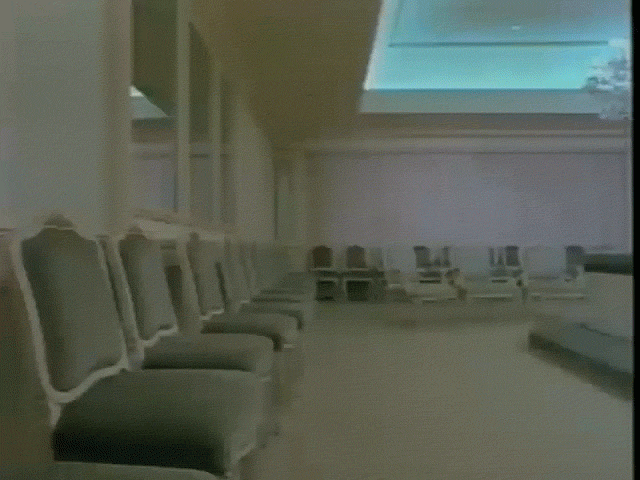
Sealing
I was mostly disappointed he didn’t cry. Every story I’d heard about a sealing, the partners cried. But he looked scared, and I wondered if he didn’t want to be there, and it sunk my stomach. Again, the hoard of his extended family, again, too exposed wearing all of this in front of them. I didn’t want to meet their eyes. I mostly felt bad everyone drove all the way to the Salt Lake Temple for this.
The ceremony was short. I remember nothing of what was said. Only that the officiant wore all white and was very old.
Nobody told me about my husband ushering me through the veil. We sat in the Celestial Room in silence. Neither of us knew the appropriate amount of time to ponder and pray there. I don’t know that either of us were really present.
I felt panicked in the dressing room afterward. I had to get back in my wedding dress, which wasn’t temple appropriate because it showed my ankles. And I had to do my makeup, because I had cried. The performance of spiritual tears. And I was embarrassed of how I looked, and I didn’t want to face any of them. And I hated hugging them outside when I was done.
And I really hated the exit kiss I knew everyone expected. So cloying among the sea of sex-for-procreation-only adults.
Most of all I felt embarrassed that my brother was there. I knew he didn’t want to be, and I felt guilty for the familial obligation. Avoidant of thinking too much about what it meant that he and my dad weren’t in the temple with me.
I didn’t want to admit I resented the church for it, not them.
2010
Two years later I tried the Keurig at work because marriage solved nothing.
It felt lonely, like my world got very small. Old behaviors returned, and I codependently ached for him to notice. In his own dissociation oblivion, he couldn’t. And neither of us could express much of anything sincere. So many miscommunications and amygdala hijacks, so few tools for understanding any of the sensations we were experiencing.
At the same time, corporate creative work made me feel small. I had always railed against Mormon motherhood directives and looked to my career for purpose. Look, Ma, they say my creativity is worth something!
But the middle-aged men who were my bosses golfed a lot, talked real sweet to me. Once in an interview the boss asked if I was married, if I planned to have babies, because he needs someone who can be here. I didn’t know that was illegal, and I took the job.
A different time a vendor accidentally cc’d me on an email not for me. “See if you can do a little licking down there … ewww” with a wink emoticon. It was about me, and I felt so embarrassed. And so defeated.
Eventually when a coworker asked if I wanted to try whiskey in my Diet Coke, I said yes. I was surprised at how easy it was. I don’t know what I thought would happen. When it was banal, I scoffed.
I didn’t tell my partner. And I didn’t tell him I had tried weed, too, and liked it. I don’t know why I didn’t tell him. I think I wanted something of my own.
Church had long turned grueling. Gospel Doctrine class oozed saccharine, newlyweds scratching each other’s backs, heads on shoulders, the performance of righteousness, of competence, the happy family glow. I detested visiting teaching—it was forced and void of anything earnest. Even worse, home teaching. The paternalism felt so out of place in my house, like I could only process soft male voices within church walls.
When they called me to be Second Counselor in the Young Women presidency, I dissociated to Mars on a rocket ship. I couldn’t look 14 year olds in the face and tell them to dress modestly. How could I teach chastity, the shame of it still so fresh on my own body?
My instinct was to protect them from it, though I didn’t recognize that. They felt so small. I still felt small. Still hurt by the bait and switch I felt the temple was. Still unhappy, wondering when god was going to show up in my lacking dopamine receptors and do something about it.
It was around here that the documentary showed up. Fawn Brodie showed up. My anger showed up. And to my surprise, my partner showed up. I wish I remembered how that first conversation went. I remember it feeling easy, and we regretted not discussing it sooner.
So I asked the bishop to release me, and I remember nothing of that conversation either.
What I do remember is leaving his office with the terror of what my mom would say if she knew. She couldn’t know. I was certain if she knew, it would kill her on the spot. She’d already “lost” my dad, one of her kids to apostasy. So I lied to her for a long time about it.
2013
We didn’t remove our records right away. That happened after a friend asked if I’d seen the CES Letter. I hadn’t.
After that, we didn’t want our names counted in their numbers. The ritual of it felt important. I didn’t have a lot of tangible proof that I’d left. I figured my family wouldn’t find out immediately, if ever. I still don’t know if they know.
2014
We moved to Seattle for the rain and to stop hiding the coffee maker before visits.
We didn’t think much about the church. We stuffed it down, didn’t think it mattered much, didn’t need to know much. Didn’t discuss it with each other, didn’t discuss it with the family, they never asked. I didn’t want them to know anything about us. It took a long time to muster the courage to cancel our gifted “Ensign” subscription, certain it would alert the sender. (It didn’t.)
I didn’t think much about anything then. I was busy morphing into shapes that pleased whoever I was with. I learned how to order at bars, how to take the ferry, how to sneak weed into a show. I reveled in the fresh start, sometimes telling people I was from Utah, other times leaving it out. It felt good to have choice in disclosure.
I was very happy, very enamored with the city, very tickled by tequila at the grocery store, very excited about my copyediting jobs. I met friends who had been raised in other Christian denominations, and while we unpacked a lot of things together, I mostly just laughed off coffee and garments and told everyone how weird the temple was. It was a party trick, more than anything.
2018
On the 41st floor of a downtown Seattle high-rise, it all caught up to me when I trusted someone I shouldn’t have.
In processing the fall-out, a friend asked if I’d ever heard of codependency. I hadn’t, and I ordered “Codependent No More” on the way home. Turns out, lots of codependents trust people they shouldn’t.
Something about what had happened surfaced a well of ache that felt old. And maybe not even entirely mine. It felt like someone had weaponized my earnesty, and the tenderest parts of me couldn’t take it. Couldn’t believe it. It wasn’t so much betrayal as it was a childlike, “Why?”
And corporate America was no different. It was that same childlike earnesty that made me a quick copywriter, a gentle copy editor. And the marketing managers lapped it up, applauded my Mormon-grown people-pleasing and slapped a monetary value on it, all of us pawns in shilling billionaire harm, just make it witty.
I went to a sound bath. I was hungry for anything that would ease the chest daggers, even if temporarily.
Toward the end of the session, my grandma floated into view. She was in a retirement home with severe dementia. I saw my mom taking care of her, bustling about, fretting. And it occurred to me that I had entered this life while my grandmother was leaving it. And my mom, just 37 years old, was her sole caretaker—and mine, for the most part.
I wondered how she had survived that, and if it meant my child brain felt responsible for her grief and urgency.
I guess I’d describe it as a perspective shift. It felt physiological, and I wondered if the sound bathers around me could hear it. Really it was just the realization that adult me might offer new insight. And I left with a teeming bucket of slippery memories to revisit.
And it was here that my deconstruction actually started.
2019
Codependency unlocked other keywords that opened more rabbit holes. I learned about the fawn response, intergenerational trauma, emotionally immature parenting, the nervous system. I went to art therapy.
I connected with a dear friend who wasn’t raised Mormon, but she was born in the Midwest, and she understood me. She pointed me to “Women Who Run With the Wolves,” and I wanted to scribble on every page and scream from a mountaintop, “THE HOLY GHOST STOLE MY INTUITION!” A lot of things woke up inside me then.
One morning I was considering modesty and its contributions to my eating disorder, and I wondered if there were any old seminary videos on the internet. Of course there were. And I was an hour late to work because I watched “Godly Sorrow,” then “The Body Is a Temple,” and they were so much worse than I remembered. Between that and “Miracle of Forgiveness,” teen me didn’t have a chance.
I was riled up, and I thought I wanted to do a project about the Young Women program. I found some old manuals, a 1990 “For the Strength of Youth” pamphlet. I scooted around eBay, getting a feel for the LDS memorabilia market.
I’m not sure why I made the Instagram. I think I wanted community. I still hadn’t engaged with any ex-Mormon spaces. It never occurred to me to seek them out. I never felt that sense of community so many Mormons miss when they leave. I didn’t know what community meant.
I called it @LatterDayLabia off the top of my head with little thought. I was looking for alliteration, and it found me. I was feeling a lot about the videos, and I needed to know if anyone else remembered them.
And you all did, and the project was born. And I’ve been ping-ponging between timelines ever since.
2020
At first I was fascinated by the church’s filmmaking history. So much of what I remembered about the church was rooted in its media. I learned that in 1953, the church hired Disney animator Judge Whitaker to head the BYU Motion Picture Studio. And Gordon B. Hinckley was the executive secretary of the Church Radio, Publicity, and Literature committee before he was called to be an apostle in 1961. And if anyone personifies my shame, it’s him.
Then I got to the Correlation Era—a complete revamp of the church’s structure and curriculum that mirrored America’s shift to neoliberalism. Which brought me to Ronald Reagan and the religious right and corporations pooling resources to ensure class power. Squashing the ERA to ensure social reproduction.
And then I met @unsettling_mormonism, whose friendship and offerings pointed me toward settler-colonialism and the anti-Black, anti-Indigenous, anti-Semitic thought embedded in the core of the Book of Mormon.
And it all started to connect with the tumult of 2020. And I could see how I had been systematically conditioned to fail at relationships. To isolate. From my own body, my own dignity, everyone around me. American individualism or Mormon exceptionalism, what’s the difference?
We are taught assimilation rather than wayfinding, and it has been lonely stumbling in my own darkness, feeling for a way forward of my own discernment.
There are so many ways I wish I had left differently. I don’t know why it took so long to understand what had happened to me. My twenties feel like a black hole, and I mourn that often. And of all the things I grieve about the first half of my life, the chronic relational trauma ranks highest.
But while my sense of self comes and goes, I’ve found that exploring my place in history grounds me in time and place.
In putting my timeline back together, I can see that for nearly 200 years my family’s backs have turned on the present to face an imagined eternal. And it has cost us all true intimacy and connection.
Totalist systems like the LDS church and capitalism count on the isolation of relational trauma. I’d argue it’s the scam entirely. To organize us around narrowly defined ideas of relationship that anxiously attach us to certainty when no such thing exists.
If there’s one book I wish I’d had sooner in my process, it’s “The Politics of Trauma” by Staci K. Haines. She says,
“Safety, belonging, and dignity. These are inherent needs in human beings. We are tracking for safety, adapting to belong, and organizing ourselves to find dignity. We are at our best when we have, and can offer, all three.
“Trauma and oppression negatively impact all three of these needs … Our survival strategies to navigate these experiences may need to prioritize connection over ongoing safety, or dignity over connection.
“We are then trying to survive and navigate our experiences while internally set at odds with our own nonnegotiable needs. Traumatic symptoms set in: depression, anxiety, lack of self-trust, distrust of others, shame, numbing, and more.
“Healing is the embodied ability to reconnect safety, belonging, and dignity and have them serve one another, rather than be at odds with one another. It is bringing our selves (body, actions, emotions, relations) into current time ... not as a concept, but as a felt reality.”
I still struggle to bring my body into current time, especially with relationships. I haven’t figured out how to stop performing for love, and I show up in my false self often. But in small ways I practice generating safety, dignity, and belonging from within, because I long to relate. I don’t want to carry these attachment wounds forever.
They keep me from the intricate work of blending timelines—building reciprocal relationships of care and trust to survive the complexities of late-stage capitalism. Which are vast, and require fluency with so many timelines.
It wasn’t until I made sense of my timeline—and its relationship to the church’s timeline, and its relationship to America’s timeline—that I could see the bigger relational picture and my place in it. Mostly, I could see where friends buoyed me at just the right time with the right piece of information, because our timelines intersected, however briefly.
The church’s eternal timeline belies the reality that we are meat computers on a rock. And while that used to scare me, it doesn’t so much anymore. Our timelines are short, but they are inextricably connected. We don’t need certainty so much as we need context. And the safety, dignity, and belonging that comes from sharing it with one another.
